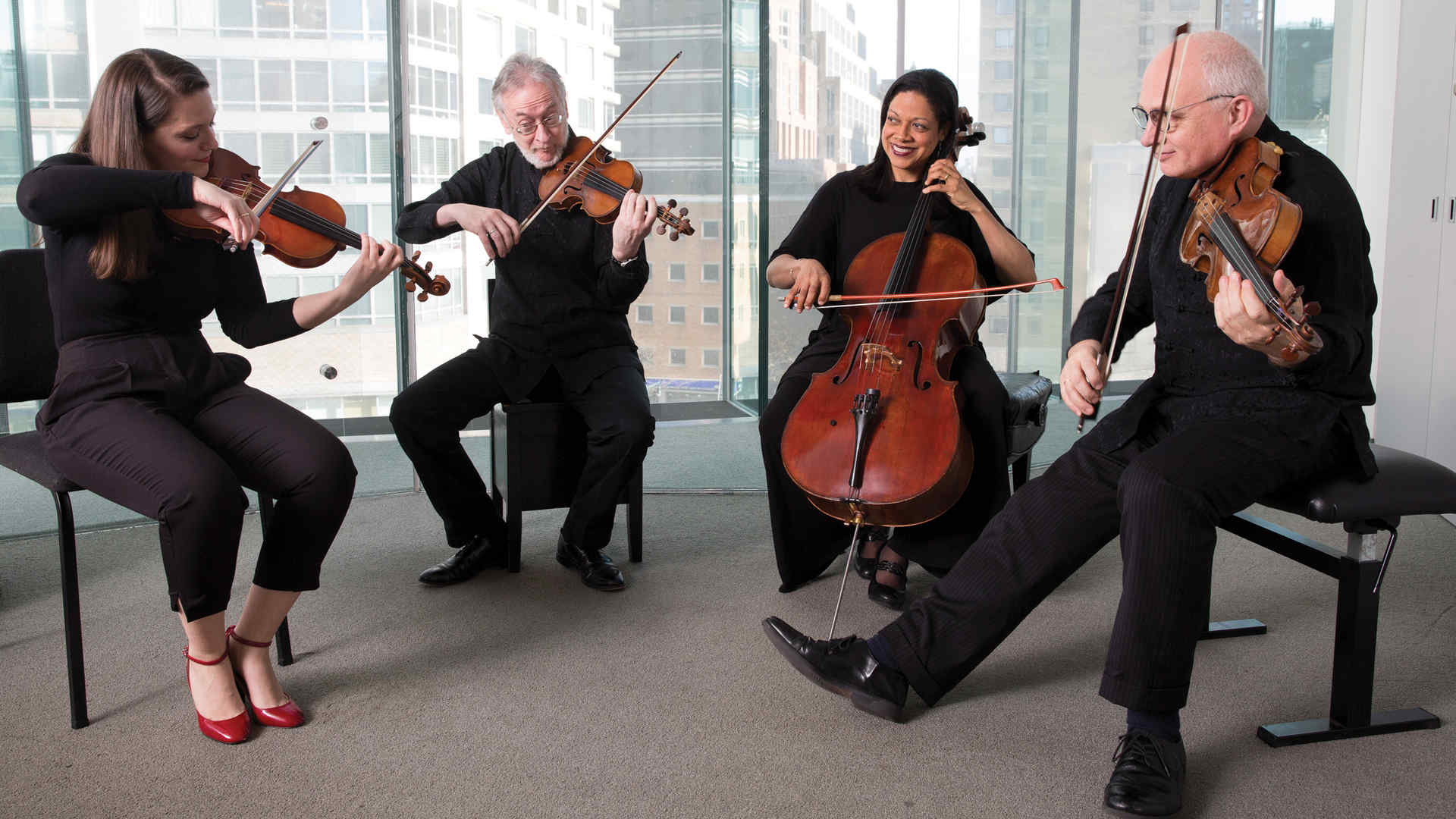
You know that feeling of indecision you get during an eye exam—the pangs of self-doubt that accompany each click of the plastic lens contraption as it switches back and forth between impossibly similar options?
“Number one, or number two? Sharper, or a little more blurry? Better, worse, or about the same?” Who could know for certain? But you’re definitely going to live with the consequences for the next year if you answer incorrectly.
It’s a sensation that I encounter quite a bit in my own musical life. As a violinist with the Argus Quartet, Juilliard’s graduate resident string quartet, my colleagues and I spend a lot of time experimenting with changes both large and small—subtle differences in our approach to a given phrase, balancing to one instrument or another, trying out different temperaments and tuning systems, or working on repertoire that might lie outside of our normal comfort zone. This sort of trial and error method is the framework of our rehearsal process. But it can definitely be challenging to know what’s better or worse sometimes, what sorts of adjustments are helping, and which ones are hurting.
The four of us are very fortunate to have the guidance of our mentors in the Juilliard String Quartet, a group that definitely knows a thing or two about making big changes. In recent years, the JSQ has undergone a pretty dramatic makeover, with recent retirements leading to several member changes: In 2013 Roger Tapping replaced longtime violist Samuel Rhodes; in 2016, Astrid Schween succeeded Joel Krosnick as the cellist, and this season, Areta Zhulla became the quartet’s new first violinist, following the departure of Joseph Lin last spring.
When the quartet presents its recital at Alice Tully Hall on November 19, it will, in fact, be the fourth version of this quartet to have appeared on the Tully stage in the past eight years. The concert will feature music by Beethoven, Dvořák, and Lembit Beecher.
“Each person brings to the quartet their own voice,” Tapping says. “It has such an interesting effect in the sense that, if one voice changes, another will change to color it a different way, and that’s going to change something else. It’s a fascinating process of observation.” But even with all the new personnel, the quartet’s commitment to thoughtful and deliberate rehearsal remains a core value. “The particular people playing things are different, and they’ll have slightly different points of view,” Tapping adds, “but the deep process of discussion, the search for meaning and expressivity, is the constant.”
There’s no way to know what the best version of any group might be. “Organizing oneself around the idea that you’re going to be reflective and exploratory and searching in your rehearsal,” Tapping says, “allows oneself to reflect that process in passionate and searching performances.” It’s that process of rehearsal and experimentation—that clicking back and forth of various artistic lenses, so to speak, that helps a group sharpen its unique musical vision.
Artist Diploma candidate Jason Issokson is a violinist for the Argus Quartet, Juilliard’s graduate resident string quartet; the quartet members are supported by Arnhold fellowships. Issokson holds a master’s degree in journalism from the University of Southern California.